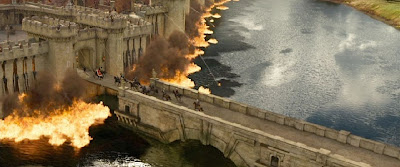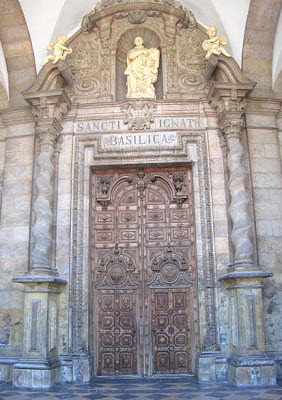Robert J. Egan SJ
Why Not? Scripture, History & Women's Ordination
Why are women excluded from being deacons, presbyters, and bishops in the Catholic Church? Are the reasons given reasonable and convincing? What can be learned from the testimony of Scripture and tradition? And what can be learned from the experience of Christians in contemporary societies? These questions provide us with an illuminating example of the crisis of contemporary Catholicism.
“The meaning of Vatican II,” Bernard Lonergan once remarked, “was the acknowledgment of history.” Sometimes I think it was just this acknowledgment of history that so soon afterward provoked a screeching of the brakes in the church and a determined effort to go backward. For acknowledging history can be painful and confusing. It teaches us about the fictions of memory, the prevalence of legend, and the truth about diversity, conflict, change, and discontinuity. We have to learn how to live with the whole truth about our history, to face it and accept responsibility for it. Even making changes is not enough if we’re still unable to acknowledge failings and experience repentance.
[...]
[T]he religious idea of tradition does not mean “whatever happened.” All kinds of things have happened in church history—some fortunate and some unfortunate, some glorious and some infamous—including a great many sins, and sins are never indicative of God’s will. They are not part of God’s plan. We all believe that God is at work in our history, but not in a way that diminishes our freedom or manipulates our choices. The Christian God is not a puppeteer. We believe the Holy Spirit makes its presence felt in our tradition, but the Holy Spirit is always free to do a new thing in our midst. Unbroken continuity might mean fidelity to God’s grace; or it might mean stubborn persistence in our refusal of grace. By itself it doesn’t prove anything. The moral toleration of slavery was an unbroken and universal tradition in the church from the beginning at least until the nineteenth century, and arguably until Vatican II, but today it is understood to be an intrinsic evil.
The mere fact that the church has always, or almost always, up to a certain point, said or done something a certain way does not in itself preclude critical reflection, spiritual discernment, even radical change—or even reversal. This is apparently difficult for some Catholics to acknowledge or accept. But it isn’t a theory. It is merely a fact of church history. There is nothing esoteric about it. A library card and an open mind are all that are needed to confirm it.
[...]
In what sense do presbyters and bishops need to “resemble” Jesus? Jesus was Jewish; he spoke Aramaic; we think he died in his early thirties. Yet no one is suggesting that church officers should be Jewish, should be fluent in Aramaic, or should leave office when they reach the age of thirty-five. Is the gender of Jesus the one decisive factor in “resembling” him? Would a loving and caring woman represent Jesus less effectively than a man who was grouchy, evasive, and preoccupied with self? Might not the ability to love in a mature, wholehearted way be the single most important factor?
And why is there this need for a resemblance to Jesus? Is it mainly an issue in regard to presiding at the Eucharistic liturgy? We have no reason to believe that presiding at the liturgy was originally thought to require an appointment or an office at all. And the liturgy is an event of communal worship, of praise and thanksgiving, not a theatrical event. Besides this, most of the time during the liturgy as a whole, and most of the time even during the Eucharistic prayer, the presider speaks in the first-person plural on behalf of the gathered assembly. It is only during the presider’s recitation of the institution narrative—and then only when the presider is quoting the words Jesus used at the Last Supper—that the impression might be given that the presider is acting “in the person of Christ.”
More fundamentally, since it is the common testimony of the New Testament, but especially of the Pauline and Johannine traditions, that we live in Christ and Christ lives in us, it is not clear in what sense it is necessary or meaningful for some members of the church to “represent” Christ to the others. This misappropriation of the Jesus role by clergy seems to require deemphasizing the real presence of Jesus in the members of the congregation, which might be said to be at the very heart of the Eucharistic celebration.
[...]
The church cannot remain exempt from the principles of its own social teaching. Catholics cannot bear witness to principles of justice, equality, subsidiarity, and participation, and claim exceptions for themselves. The question is this: Has the tradition of excluding women from the diaconate, presbyterate, and episcopacy really been faithful to the teaching and practice of Jesus? Or has it been part of a mostly unexamined and partially unconscious bias for subjecting women to men’s authority and power? Which is the more believable interpretation of our history as a people?
This is a very important question, one that urgently needs and deserves an open, prayerful, learned, patient, and discerning conversation among Catholics today.
And yet it does not happen. And so the crisis deepens.



























._Entrada.jpg)

.jpg)





